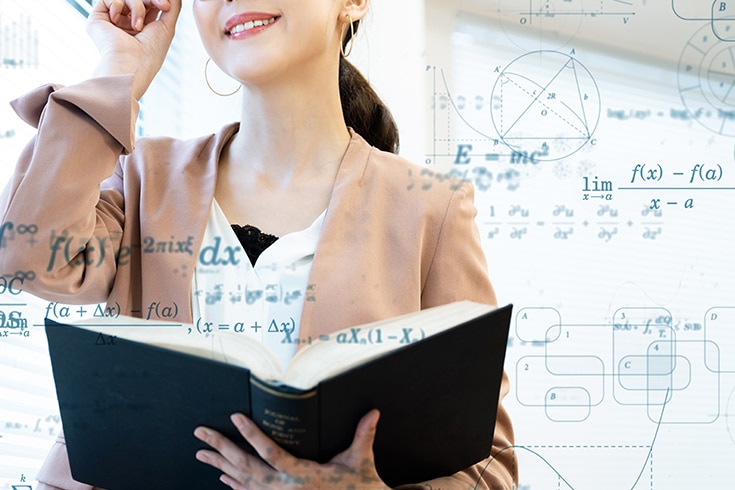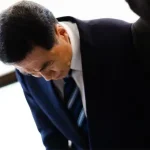Can Copyrights Be Granted to Ideas? The Boundary Between Expression and Idea

Copyright is a right to protect creative works. According to the Japanese Copyright Law, it is defined as:
“An expression of thoughts or feelings that is creatively expressed and falls within the realm of literature, academia, art, or music.”
Article 2, Paragraph 1 of the Japanese Copyright Law
In other words, thoughts or feelings themselves, such as ideas or theories, are not recognized as copyrighted works, even if they are original or novel.
However, distinguishing between ideas and expressions can be difficult, and it has often been a point of contention. In this article, we will explain how ideas and copyrights are judged in the context of linguistic works.
For a detailed explanation on how ideas and copyrights are judged in the context of photographic and artistic works, please refer to the following article:
https://monolith.law/corporate/idea-copyright-admit-case-law[ja]
Idea-Expression Dichotomy
There is a fundamental and internationally recognized concept known as the “Idea-Expression Dichotomy” related to this issue.
In copyright law, this concept distinguishes between an idea and its specific expression, protecting only the latter. It posits that if only the idea is common, it does not constitute copyright infringement.
The purpose of this concept is to prevent the stifling of free expression by protecting ideas. If the person who first expresses an idea is allowed to monopolize that idea as a right, those who follow will not be able to freely express the same idea, making it difficult for new creations to emerge. This situation contradicts the original purpose of copyright law, which is to “encourage the creation of new works by providing a fair return to authors, thereby promoting cultural development”.
The Boundary Between Ideas and Expressions in Litigation

If we could clearly distinguish the boundary between ideas and expressions, the scope of protection would be obvious. However, it is difficult to draw a clear line between what is an idea and what constitutes a specific expression. Even in past precedents, it cannot be said that a general standard has been established.
We will consider the boundary between ideas and expressions while looking at court cases where the presence or absence of copyright infringement was disputed.
Mathematical Science Paper Incident

There was a case where a member of a joint research group conducting interdisciplinary research in medicine, mathematics, and physics, who had published a mathematical science paper in an internationally renowned foreign academic journal either alone or in collaboration with some members of the research group, was accused of infringing the copyright of a conference presentation paper, which was a joint work of all members of the research group.
In this case, the court did not recognize the copyright infringement.
In a work related to mathematics, the process of clarifying the proposition presented is the idea of the work itself. Therefore, while one can claim rights under the Copyright Law if creativity is recognized in the expression of the process of clarifying the proposition, the process of clarifying the proposition and the equations used to explain it do not constitute a work under the Copyright Law.
Osaka High Court, February 25, 1994 (Heisei 6)
The judgment states,
The purpose of publishing about science is to convey practical knowledge contained therein to the general public and to provide other scholars with opportunities to further develop it. If this development constitutes copyright infringement, the purpose would not be achieved. This applies to mathematics, a field of study in science. If the process of clarifying a proposition, including the development of equations, expressed in its work is considered a work under the Copyright Law, it would not be possible to further develop it.
This is a precedent that the process of clarifying a proposition and equations in a mathematical science paper do not constitute a work under the Japanese Copyright Law.
https://monolith.law/corporate/copyright-infringement-relatedtothe-program[ja]
Esashi Oiwake Incident: First Instance and Appeal

On the other hand, the Esashi Oiwake incident is a case where the judgment was reversed in the High Court and the Supreme Court. In this case, the author of a non-fiction work about Esashi Oiwake claimed that a TV program titled “In Search of the Roots of Esashi Oiwake” was an adaptation of his book, and sued NHK and others who produced and broadcast the program for damages.
The issue was the description in the prologue of the book, which stated that the Esashi Oiwake National Convention was the climax of the year. In Esashi town, it is generally understood that the summer festival of Ubashin Shrine held in August is the most bustling event for the whole town, and while the Esashi Oiwake National Convention is an important event held every year, it was not the case that the whole town was bustling.
However, in the TV program in question, the narration,
“In September, Esashi, once a year, regains its former bustle. The national convention of the folk song, Esashi Oiwake, is held. During the three days of the convention, the town suddenly comes alive.”
was claimed by the plaintiff to be an unauthorized adaptation of the text in the book,
“Esashi, for only two days in September, suddenly reaches the most brilliant climax of the year. The Esashi Oiwake National Convention, gathering the pride of Oiwake from all over Japan, is held.”
The plaintiff argued that this was an infringement of his adaptation rights.
The Tokyo District Court (judgment of September 30, 1996) and the Tokyo High Court (judgment of March 30, 1999), which was the court of appeal, acknowledged the plaintiff’s claim regarding the identity of the prologue of the book and the narration of the program, and stated,
In other words, it is generally understood in Esashi town that the most bustling event is the summer festival of Ubashin Shrine in August, and it is a unique perception of the author, who has a special passion for Esashi Oiwake, to consider it to be the time of the Esashi Oiwake National Convention. The narration in question describes the gist of the prologue in the same order, and not only does the content of the expression coincide, but despite the fact that the expression about the most bustling event of the year differs from the general perception, it coincides with the prologue, and there are many similar expressions in the external form of expression. Therefore, one can directly perceive the essential personalityistics of the form of expression in the prologue. Therefore, the narration can be said to be an adaptation of the prologue, and the production and broadcasting of the program infringe upon the defendant’s adaptation rights, broadcasting rights, and right to display his name with respect to the work in question.
They concluded.
Esashi Oiwake Incident: Appeal Trial
In response to this, NHK and others appealed. In this appeal trial, a judgment was made that is still used as a standard for copyright (adaptation right) infringement.
The Supreme Court defined “adaptation of a work” as:
An act of creating a new work that allows those who come into contact with it to directly perceive the essential personalityistics of the existing work’s expression, by relying on an existing work, maintaining the identity of its essential personalityistics in expression, and adding modifications, additions, changes, etc. to the specific expression, thereby creatively expressing new thoughts or emotions.
Furthermore, the court stated:
Creating a work that only has identity with an existing linguistic work in parts that are not the expression itself, such as thoughts, emotions, ideas, facts, or events, or parts that lack creativity in expression, does not constitute an adaptation of the existing work.
Supreme Court judgment, June 28, 2001 (2001 in the Gregorian calendar)
Firstly, the Supreme Court stated:
The parts of the narration in question that have identity with the prologue, such as the fact that Esashi Town once prospered with herring fishing and was a prosperous town said to be ‘not even in Edo’, and that there is no trace of it now that the herring have left, belong to general knowledge and are common facts in the introduction of Esashi Town, and are only recognized as having identity in parts that are not the expression itself.
And then:
Even if the perception that the most bustling time in current Esashi Town is during the Esashi Oiwake National Convention is a unique recognition or idea of the author that differs from the general thinking of the residents of Esashi Town, this recognition itself is not an expression that should be protected under copyright law, and there is no reason to prohibit expressing the same recognition. In the narration, the TV program side expressed on the same recognition as the author that the Esashi Oiwake National Convention is held in September in Esashi Town, and once a year, the town regains its former bustle and becomes lively all at once, which only resulted in recognizing identity with the prologue in parts that are not the expression itself, and the specific expressions of both are different.
Therefore, although the narration in question was created based on the work in question, the parts that have identity with the prologue are parts that are not the expression itself or parts that lack creativity in expression, and it is not possible to directly perceive the essential personalityistics of the prologue’s expression from the expression of the narration, so it cannot be said to be an adaptation of the prologue.
The court ruled this way and dismissed the author’s claim.
This is a precedent that shows the specific judgment method for infringement of adaptation rights and that ideas are not protected under copyright law.
Summary
Even if parts that are not expressions like ideas are similar, it is not considered copyright infringement unless the essential personalityistics can be directly perceived.
However, determining this boundary is very difficult, so please consult with an experienced attorney.
Category: General Corporate
Tag: General CorporateIPO





















